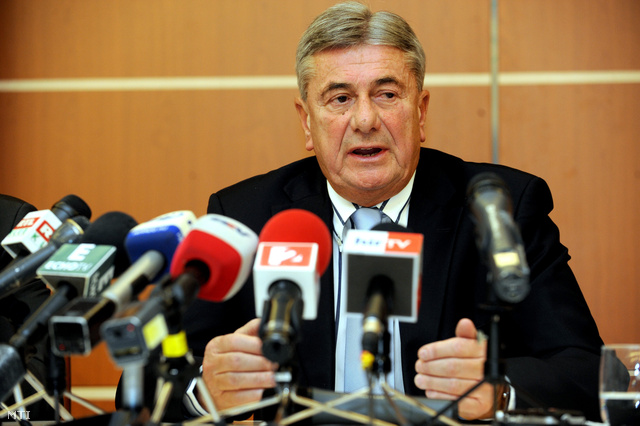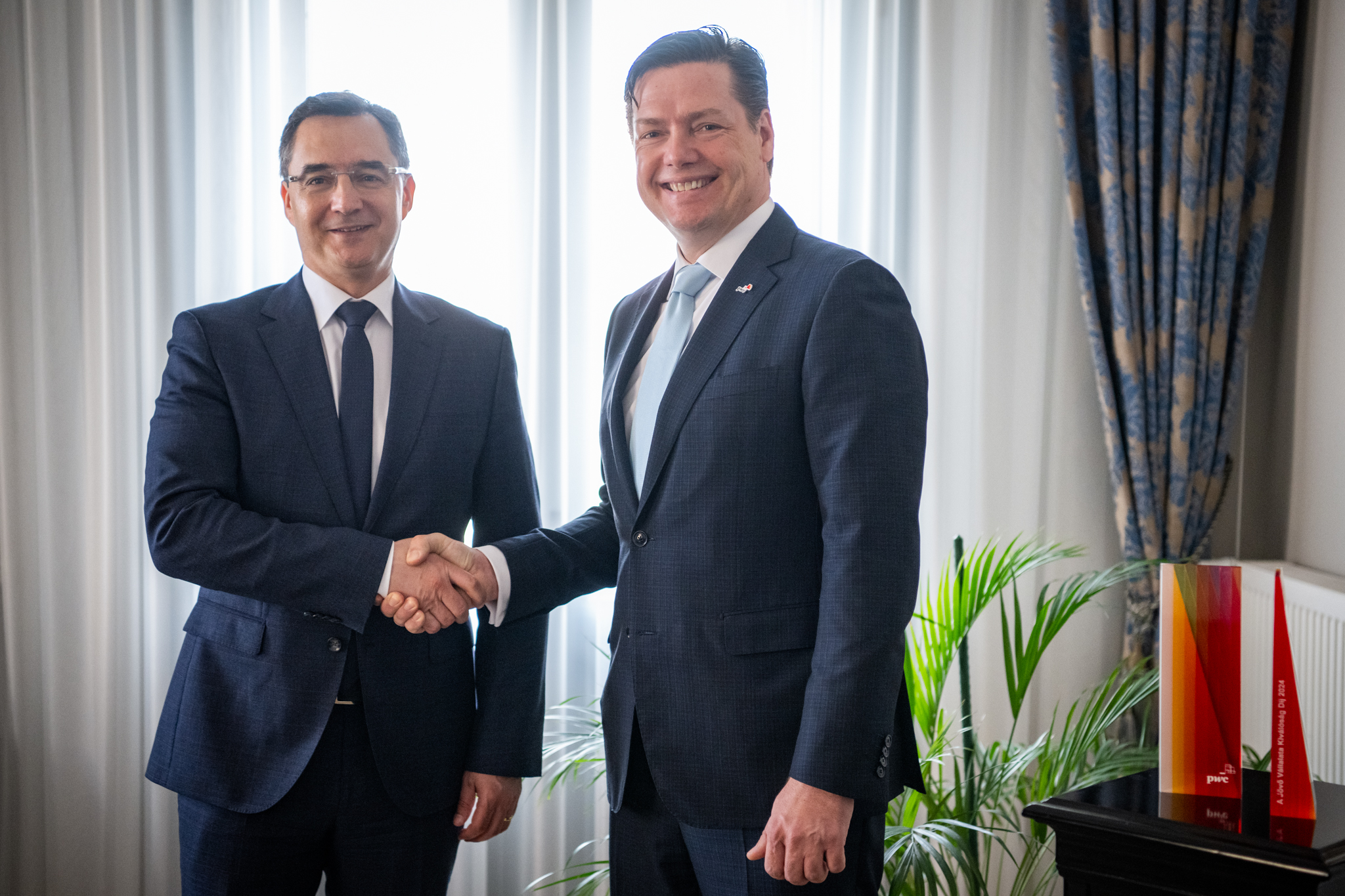A foothold in new markets: HITA director on Eastward-facing trade

The Budapest Business Journal interviewed the new chairman of the Hungarian Investment and Trade Agency János Berényi right after he held a two-hour meeting with foreign trade state secretary Péter Szijjártó in January in which they discussed plans for the next two to three months.
BBJ: How can you make use of your previous experience in this new position?
Berényi: Although HITA is a government agency, a bit like a ‘mini foreign trade ministry’, as a former manager of state-owned companies operating on the competitive market, I try to manage it as if it was a corporation. HITA’s main activities, foreign investments and export promotion, are closely related to the competitive sphere. Accordingly, we aim to introduce HITA as a new brand both in Hungary and abroad.
We had a really good year in 2013 with investments made to the value of €1.2 billion, and a €420 million increase in export revenues with the assistance of the agency. In comparison, HITA’s budget last year was HUF 3 bln. Our most remarkable projects included Japan’s automotive safety systems and products supplier Takata, which has created 1,000 new jobs. HITA assisted the company throughout the whole investment process from the moment they contacted one of our regional offices. Other big projects, like the expansion of Korean tire maker Hankook and carmaker Opel, added 950 an 800 jobs, respectively.
In 2014, we would like to achieve at least similar results. In our portfolio, we have more than 100 investment projects; of these 30 are close to an agreement.
How can HITA contribute to the government’s ambitious ‘Eastern Opening’ policy?
While our task is to implement the government’s foreign trade strategy, our motto is ‘Holding out in the West and opening in the East’. It means that we have to come to terms with the fact that it is almost impossible to grow in Hungary’s traditional export markets in the European Union. Our main goal here is to retain our existing positions. At the same time, we have to gain a foothold on new dynamically growing markets. The prime minister’s recent trips clearly reveal the main target countries, which include Japan, China, India and Russia. Beside that, the Balkan region and the CIS countries are also on our radar.
At our meeting with the state secretary, we finalized the details of our trip to China with a delegation of 110 executives on February 12. We will also organize an Arab summit in Riyadh in March with the participation of 130-140 businessmen from a wide range of sectors. Hungary’s hottest sector now is the food processing industry and agriculture, followed by water management, the pharmaceutical sector and electronics. Several meetings of intergovernmental commissions are under preparation with countries like Qatar, Romania and China.
These efforts usually bear fruit only after several rounds of negotiations. We must not forget the differences in business culture, consumer habits and the regulatory environment. Often there are administrative hurdles, and freight costs to far-away destinations can also be high. This is where HITA can assist companies to overcome all the obstacles. Prior to these trips, for instance, the agency organizes comprehensive management training through its SME Academy. There are more than 1,200 companies, which have attended events related to the ‘Eastern Opening’ policy.
What are the most successful areas of investment promotion?
Shared Service Centers, which appeared in Hungary at the end of the 1990s, have created thousands of new jobs and attracted high-value added projects to Hungary. Currently, there are around 80 SSCs here, employing more than 30,000 workers. I believe that the quality of education is still high, Hungarians, especially the younger generation, speak foreign languages and labor costs are still relatively competitive in Europe. The inauguration ceremony of Computacenter’s IT service desk operation took place in Budapest’s Haller Gardens in January. The company, which is a UK-based provider of IT infrastructure services, aims to create 250 new jobs.
The unstable regulatory and business environment coupled with unpredictable economic policy has made foreign investors shy away from Hungary. What kind of feedback does the agency receive in that respect?
I do not see a significant fallback in investments despite the sometimes-unjustified negative media campaign in some EU countries or critical remarks by the EU itself. HITA visits foreign companies operating in the country on a regular basis within the framework of our ‘After Care Program’. We often get positive feedback with many companies saying that they want to further expand in Hungary. Investors seem to accept, for instance, the flat-rate personal income tax, which has been a much-debated issue in Hungary.
I meant the sectoral taxes in the first place.
Obviously, nobody is happy about that, but the government says that all businesses operating in Hungary have to help the country to get out of the crisis. Sometimes we do have to explain ourselves, for instance in the case of fast changing regulations and the lack of skilled labor in some of the country’s less developed regions.
On the other hand, foreign investors welcome the introduction of strategic agreements with the government. HITA has been approached many times by aspiring companies asking about the preconditions.
János Berényi, a qualified economist, started his carrier at regional railway company GySEV, where he was chairman and CEO from 1990 until 2002. Later he held executive posts at state-owned railway company MÁV and former national airlines MALÉV. Berényi was also active as a sport manager. He was, among others, the president of Hungaroring Sport Rt, the company behind the Hungarian Formula 1 Grand Prix, for ten years. Prime Minister Viktor Orbán appointed Berényi HITA chairman in December 2013.
HITA was established in January 2011 by the government to promote the international business activities of Hungarian small- and medium-sized enterprises and to encourage foreign businesses to invest in Hungary. HITA’s activities are controlled by the prime minister, as prescribed by law, via the state secretary for foreign affairs at the Prime Minister's Office. Aside from its central office, HITA has opened six provincial offices in large cities across the country. The agency operates in close cooperation with diplomats, promoting foreign trading activities in 49 countries all over the world.
SUPPORT THE BUDAPEST BUSINESS JOURNAL
Producing journalism that is worthy of the name is a costly business. For 27 years, the publishers, editors and reporters of the Budapest Business Journal have striven to bring you business news that works, information that you can trust, that is factual, accurate and presented without fear or favor.
Newspaper organizations across the globe have struggled to find a business model that allows them to continue to excel, without compromising their ability to perform. Most recently, some have experimented with the idea of involving their most important stakeholders, their readers.
We would like to offer that same opportunity to our readers. We would like to invite you to help us deliver the quality business journalism you require. Hit our Support the BBJ button and you can choose the how much and how often you send us your contributions.









